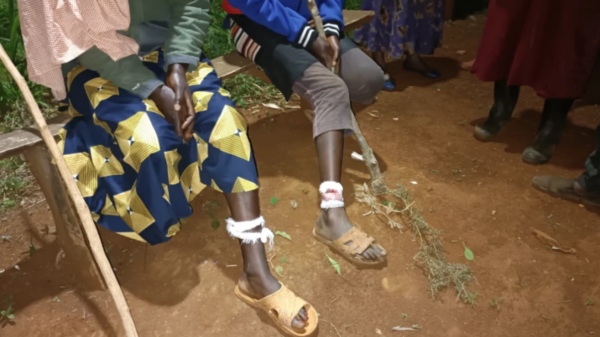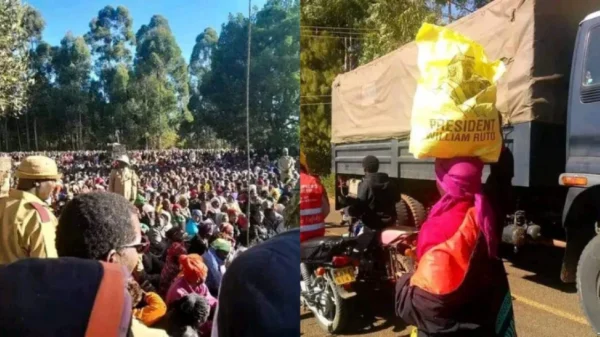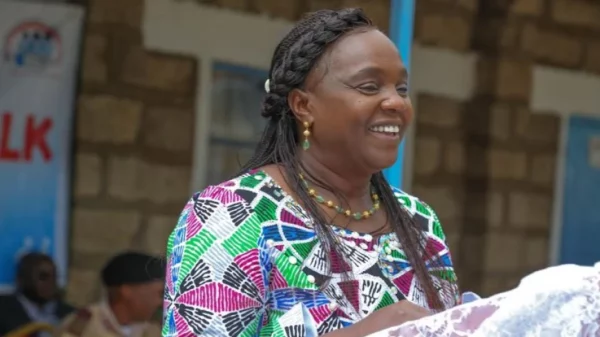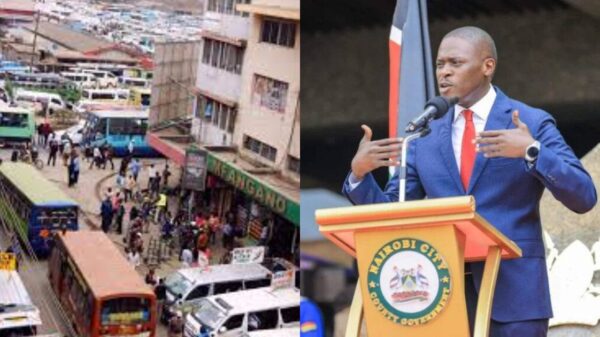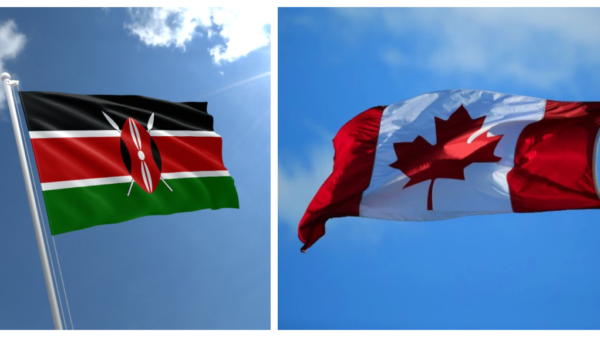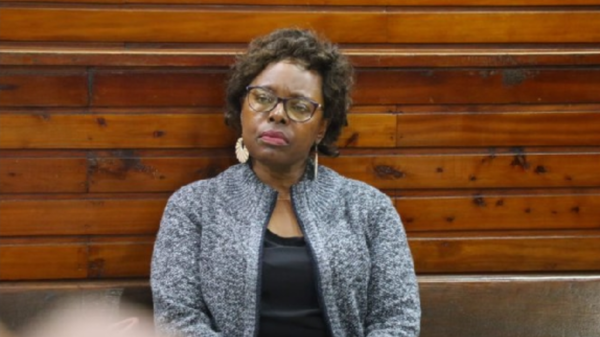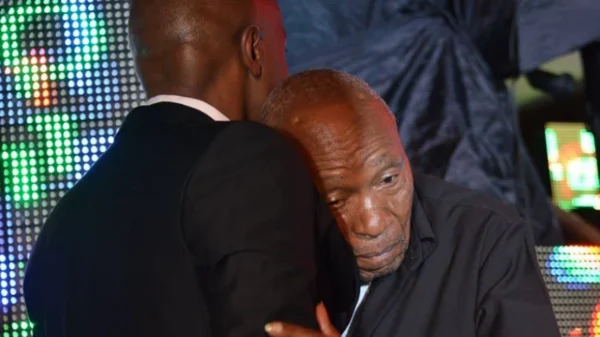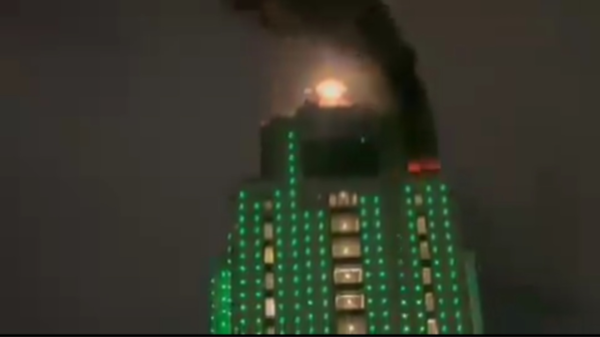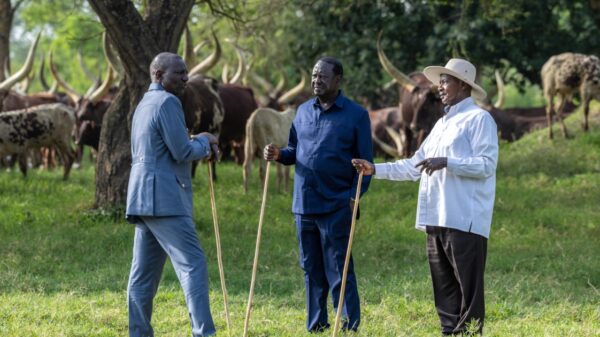• Some Kenyan students who left Sudan after war broke out in the country are accusing the government of lying that it helped them escape.
• A student told the British broadcaster BBC on Tuesday that they had to figure out on their own how to get to Gondar.
• They accuse the Kenyan government of taking unfair credit for an escape plan that they claim to have organized and paid for with their own money.
Some Kenyan students who have since left Sudan after war broke out in the country are accusing the government of lying that it helped them escape.
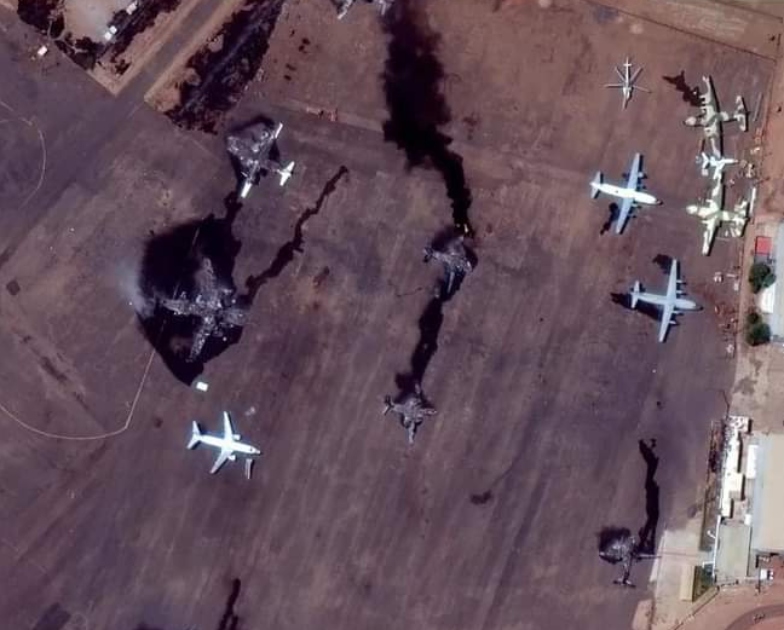
They accuse the Kenyan government of taking unfair credit for an escape plan that they claim to have organized and paid for with their own money.
According to Roseline Njogu, principal secretary for foreign and diaspora affairs, they “facilitated” the crossing of 29 “brave kids” from Kenya into Ethiopia, where they would then fly them back to their home countries.
“What a sight for sore eyes! Part of a group of 29 Diaspora now in Gondor, Ethiopia who fled Sudan. Facilitated by our team in Ethiopia, and Nairobi. Brave kids! From here, we fly them home,” a post on her Twitter account read in part, along with a photo of 27 students.
But one of the students told the British broadcaster BBC on Tuesday that they had to figure out on their own how to get to Gondar, where the Kenyan embassy is in Ethiopia, in order to be assisted.
The student, feeling “sad and let down by the embassy because I thought it would have our backs in such a crisis”, said they paid around Ksh.40,000 ($300) out of their pocket and that they had to bribe Sudanese policemen severally on the way.
“Honestly it wasn’t easy… We didn’t eat for two days – the focus was on running for our dear lives. I’m glad that I took the risk to escape the war zone,” they said, adding they “managed to escape the Rapid Support Forces along the road amid criminals on the move”.
Sudan’s war has majorly played out in the capital Khartoum since April 15, where forces loyal to army chief Abdel Fattah al-Burhan have been confronting those of his former deputy Mohamed Hamdan Daglo, who commands the RSF.
At least 427 people had been confirmed killed and more than 3,700 wounded, according to UN agencies.
The first group of Kenyan evacuees in the country arrived in Nairobi aboard a military plane on Monday evening. The group comprised 39 students, among them 19 Kenyans, 19 Somalis, and one Saudi Arabian national, according to the Foreign Ministry.
Defence Cabinet Secretary Aden Duale on Monday said the students travelled by road to South Sudan where they boarded the military aircraft.
He added more Kenyans were scheduled to be airlifted.
“I applauded the youngsters for their courage and resilience in braving the ongoing bloodbath and, further encouraged Kenyans stranded in Sudan and their families back home to continue registering with the State Department for Diaspora Affairs, for logistical purposes,” Duale said in a tweet.
Their arrival came just hours before US Secretary of State Antony Blinken’s announcement that the warring Sudanese factions agreed to a 72-hour ceasefire.
Blinken said the Sudanese Armed Forces (SAF) and the Rapid Support Forces (RSF) followed intense 48-hour negotiation.
The ceasefire would start at midnight on April 24.







